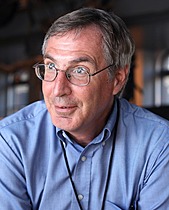
The Big Myth
The Big Myth uncovers the truth about another disastrous dogma: the "magic of the marketplace." In this book, historians of science, Naomi Oreskes and Erik Conway, present a profound, unforeseen history of one of America's most powerful—and destructive—false ideas: the myth of the "free market." Together, they traced the rise of “market fundamentalism” across the 20th century. With startling archival evidence, Oreskes and Conway document campaigns to rewrite textbooks, combat unions, and defend child labor. They detail how business leaders formed groups to fight government regulations and progressive social programs. Ultimately, Oreskes and Conway advocate for a middle path that is both “pro-market and pro-government.”
PRAISE FOR THE BOOK
“[A] scorching indictment of free market fundamentalism … and how we can change, before it's too late.”
―Esquire, Best Books of Winter 2023
"Richly researched … [Oreskes and Conway] succeed in chronicling a concerted effort by American business to shift public opinion in favor of free markets."
“Impressive.”
―The New York Times
”If today's executives want to address the tensions about their companies' role in our societies, The Big Myth suggests one starting point: for business to stop pushing the idea that the only role of government is to get out of its way.”
―The Financial Times
“A persuasive examination of how corporate advocates, libertarian academics, and right-wing culture warriors have collaborated to try to convince the American people that economic and political freedom are indivisible, and that regulation leads inexorably to tyranny ... Polemical yet scrupulously researched, this wake-up call rings loud and clear.”
―Publishers Weekly
“A thoughtful denunciation of the economic dogma that the market knows best … A timely, well-argued contribution to the literature of economic inequality and regulation.”
―Kirkus Reviews



